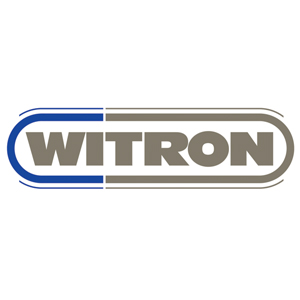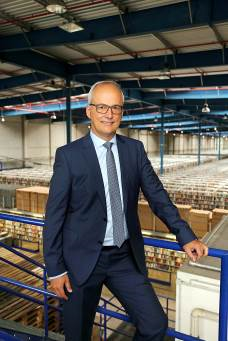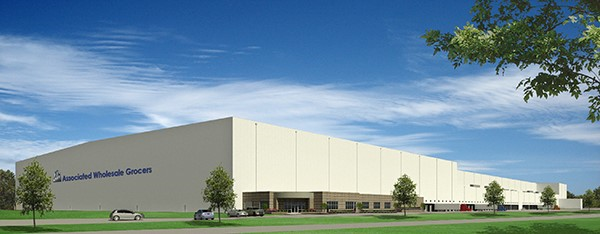
Libri: Book production and omni-channel logistics
The idea is not new: As early as 1997, the book wholesaler, Libri, came up with the concept for publishers and authors to publish books via print-on-demand, starting with edition 1, including distribution, throughout the book industry. This idea gave rise to the sister company BoD, which today is the European pioneer and leading specialist in digital book publication and self-publishing. As part of a group of companies, Libri and BoD are now investing in the future of the book market. They are building Europe’s largest and state-of-the-art print-on-demand center with PLUREOS. The goal at the logistics site in Bad Hersfeld (Germany): With completion in autumn of 2021, millions of national and international titles will be available to readers on a permanent basis, overnight, and through a sustainable production.
With the seamless integration of BoD’s print-on-demand production into Libri’s bookstore logistics, the production and delivery time for paperback titles will be reduced from two to three days to one day. In the future, there won’t be any delivery time distinction between books in stock and hot of the press books. Realization partner for the project is WITRON Logistik+ Informatik GmbH, a systems integrator from the Upper Palatinate (Bavaria, Germany).
Libri thus operates one of the most efficient omni-channel logistics centers in this industry around the globe. The distribution center in Bad Hersfeld supplies 3,800 stationary bookstores of various sizes and 1,200 internet stores across all channels. Book lovers who do not want to purchase in the actual shop can also order via the online platforms of Libri’s authorized dealers and have the book delivered to their home directly from Bad Hersfeld.
Jörg Paul, COO of the book wholesaler, is responsible for the project at Libri. “The combination of print, logistics, and fast shipping with PLUREOS is unique in this industry sector in Europe”, Paul is happy.
In October, employees celebrated the finishing of the outside building structure for the new hall with a floor area of 10,000 square meters / 108,000 square feet. “The basement covers the delivery area for the print machines, print-on-demand production, and the paper storage. Logistics and conveyor system are installed on the upper floor”, explains Paul. In the future, up to 50,000 books will be printed daily with PLUREOS and then be shipped overnight. A fast track process for particularly time-critical orders is planned as well. Libri considers itself as a service provider for publishers and booksellers – and establishes new distribution channels for both partners.
Modernization and new business
“With the new print and logistics center, we are reducing storage costs, increase title availability in bookstores, and have fewer returns”, explains Paul. “The challenge, and at the same time the success factor, is speed. We have to be just as fast or even faster than the classic stored goods.” Libri confronted Ulrich Schlosser with this requirement. Schlosser is responsible for the modernization projects at WITRON and knows Libri for many years. The Upper Palatinates realized the existing logistics center. More than 700,000 books are picked here per day for store and online customers. “At first we thought that the Libri colleagues wanted to modernize their systems. Who would expect a completely new material flow”, jokes Schlosser. IT systems have to be updated, the control technology of all stacker cranes and the entire conveyor system will be updated as well. But this modernization project is much more complex and additionally includes a new material flow. “We are modernizing and changing in parallel during ongoing operation, an open-heart surgery, so to speak”, explains Schlosser.
The future process: The print machines are connected to the ERP system and exchange data. From the ERP system, the WITRON logistics systems also receive the information about the books to be printed, the shipping windows, and customer data. Once the book is printed, the machine automatically places it onto the conveyor system. The book from the printing machine is a second receiving process for the system. As soon as the book leaves the machine, the system identifies the book via barcode and guides it in the WITRON WMS. There, the system processes the information whether it concerns a single or multiple positions.
A new receiving process
The book is placed into a bin and either goes directly to the picking station or into a buffer. Paul is looking for 20 new employees in logistics in early and late shifts who are supported by the implemented technology during the picking process. “We are also using dynamic virtual pick fronts”, says Paul. In addition to order pickers, he is looking for technicians and print workers.
In the buffer, the individually printed book may be waiting for fast movers from the existing warehouse. “The customer orders a bestseller and a title as print-on-demand”. Both books are consolidated by the technology and then transported to a picking station. In the fast mover area, Libri works with WITRON’s DPS system (Dynamic Picking System).
WITRON DPS for cross-channel processes
DPS works according to both principles, goods-to-person or person-to-goods. Depending on the order structure, the items are arranged in the pick front either permanently or on a demand-oriented basis, such that this is always optimized. The classification of the product structure is consistently verified and adapted by the DPS. Semi-automatic picking is supported by a pick-by-light system. Designed for the requirements of the omni-channel business, the products can be picked for store orders into shipping bins and for online orders in a pick and pack process into the shipping carton. Replenishment of the picking zones, integrated in the tote warehouse, is exclusively system-controlled by stacker cranes.
WMS and material flow optimizations
“The challenge in the project is the IT. We have to coordinate the time windows, design the buffers, and feed the inventory system with information”, says Schlosser. In addition to the 156 tote stacker cranes in the old warehouse area, the technicians are installing additional devices in the buffer zone of the new book print area.
Schlosser and Paul combine retail logistics with production logistics. “The project is also a special one for us”, emphasizes Schlosser. However, such projects could also gain in importance in other industry sectors in the future. Additive production processes are changing the spare parts business in the automotive industry, for example. “When 3D printing leaves the prototype stage, then we will see similar approaches in other industry sectors”, Schlosser is convinced. Jörg Paul and his team at Libri are giving a 500-year-old business a new lease of life in production. They are reinventing themselves and their business.
Figures and facts:
Size of the logistics center: 215,000 square meters / 975,000 cubic meters
(2.3 M square feet / 34.5 M cubic feet)
Size of the print center (PLUREOS): 20,000 square meters / 215 K square feet
(distributed over two floors)
Number of customers: approx. 5,000
(3,800 stationary book stores + 1,200 internet shops)
Number of SKUs: 800,000 on stock => more than 7 million
purchase items
Pallet storage locations: 25,000
Tray storage locations: 570,000
Picks / peak day: 730,000 copies / day
Number of picks / peak day (PLUREOS): 50,000 books / day
Pick workstations in the DPS: 104
Pick workstations (PLUREOS) 8
Conveyor system more than 20 kilometers / 12 miles
Number of stacker cranes: 156
Buffer vehicles (PLUREOS) 5
About Libri:
As a media wholesaler, the Libri bar assortment is an important link between publishers and booksellers. Libri customers include more than 4,000 book shops of all sizes that are reliably supplied overnight with the books ordered. With the largest range of titles in the German book market, Libri covers over 95% of the demands of book stores, even very specialized ones. Libri’s own delivery service plays a key role in ensuring that books are present everywhere as a symbol of cultural diversity. Libri has developed one of the most efficient logistics and IT infrastructures for the book trade. As a consultant and service provider, the company provides white label shops, ordering and ERP systems to control processes and material flows, as well as a clearing center to forward orders from publishers. The Libri administration is located in Hamburg, the company’s founding location and headquarters. Since the year 2000, the logistics center has been operating from Bad Hersfeld (Hesse, Germany) reaching out to almost all destinations across Germany overnight.
Movie about Libri logistics
https://www.libri.de/de/unternehmen/ueber-uns/logistik-zentrum-bad-hersfeld/

“The challenge, and at the same time the success factor, in our business model is speed.”

